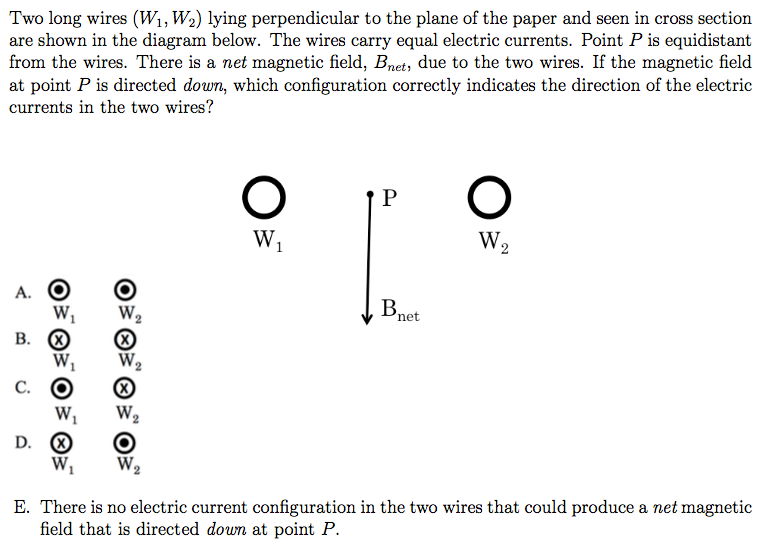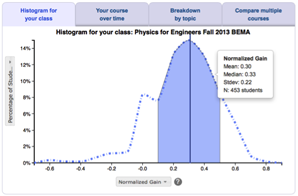Developed by Darren L. Broder, Michele W. McColgan, and Rose A. Finn
| Purpose | To assess basic concepts in introductory E&M courses. |
|---|---|
| Format | Pre/post, Multiple-choice |
| Duration | 45 min |
| Focus | Electricity / Magnetism Content knowledge (electrostatics, electric fields and force, circuits, magnetism, induction) |
| Level | Intro college |
Sample questions from the EMCA:



EMCA Implementation and Troubleshooting Guide
Everything you need to know about implementing the EMCA in your class.
Login or register to download the implementation guide.
more details
This is the third highest level of research validation, corresponding to at least 3 of the validation categories below.
Research Validation Summary
Based on Research Into:
- Student thinking
Studied Using:
- Student interviews
- Expert review
- Appropriate statistical analysis
Research Conducted:
- At multiple institutions
- By multiple research groups
- Peer-reviewed publication
The multiple-choice questions on the EMCA were developed by a group of five faculty members based on their experience teaching the relevant topics. The EMCA was given to over 200 algebra-based and calculus-based second-semester introductory physics students, and appropriate statistical analyses of reliability, difficulty and discrimination were conducted. Reasonable values were found. Scores for men and women were similar.
References
- M. McColgan, R. Finn, D. Broder, and G. Hassel, Assessing students’ conceptual knowledge of electricity and magnetism, Phys. Rev. Phys. Educ. Res. 13 (020121), (2017).
PhysPort provides translations of assessments as a service to our users, but does not endorse the accuracy or validity of translations. Assessments validated for one language and culture may not be valid for other languages and cultures.
| Language | Translator(s) | |
|---|---|---|
| Indonesian | Riska Meikana Br Ginting, Syuhendri, and Nely Andriani |  |
If you know of a translation that we don't have yet, or if you would like to translate this assessment, please contact us!
Score the EMCA on the PhysPort Data Explorer
With one click, you get a comprehensive analysis of your results. You can:
- Examine your most recent results
- Chart your progress over time
- Breakdown any assessment by question or cluster
- Compare between courses
| Typical Results | ||||||||||||||||||||||||||||||||||||||||
|---|---|---|---|---|---|---|---|---|---|---|---|---|---|---|---|---|---|---|---|---|---|---|---|---|---|---|---|---|---|---|---|---|---|---|---|---|---|---|---|---|
Average scores and standard deviation for pretest, post-test, and normalized gain in introductory electromagnetism courses at Sienna College and George Washington University (GWU). The Sienna College algebra-based course has an emphasis on topics relevant to life sciences and is "taught in a traditional lecture style interspersed with students completing preassigned problems on the board during class." The Sienna College calculus-based course is taught with "a mix of short lectures frequently interspersed with think-pair-share questions and other mini problems." The GWU course is taught using a SCALE-UP model. From McColgan et al. 2017.
|
The latest version of the EMCA, released in 2015, is version 1.





